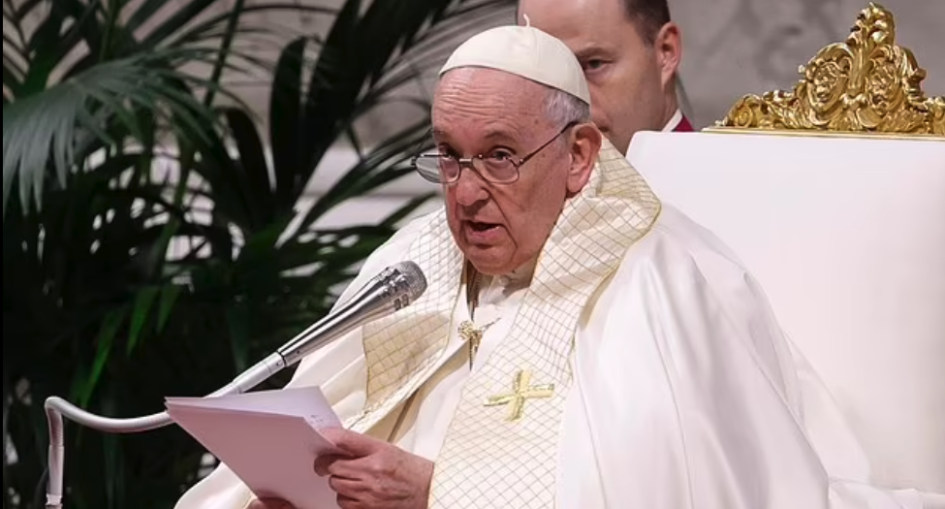Fiducia Supplicans, published Monday, reaffirms marriage between a man and a woman, but states the Catholic Church “must shy away from resting its pastoral praxis on the fixed nature of certain doctrinal or disciplinary schemes.”
The declaration appears to answer the Dubia in line with Catholic teaching, stating:
the Congregation for the Doctrine of the Faith’s Explanatory Note to its 2021 Responsum recalls that when a blessing is invoked on certain human relationships by a special liturgical rite, it is necessary that what is blessed corresponds with God’s designs written in creation and fully revealed by Christ the Lord. For this reason, since the Church has always considered only those sexual relations that are lived out within marriage to be morally licit, the Church does not have the power to confer its liturgical blessing when that would somehow offer a form of moral legitimacy to a union that presumes to be a marriage or to an extra-marital sexual practice. The Holy Father reiterated the substance of this Declaration in his Respuestas to the Dubia oftwo Cardinals.

Then, attempts to justify the blessings of same-sex unions as a supplication that God helps them become holier:
Within the horizon outlined here appears the possibility of blessings for couples in irregular situations and for couples of the same sex, the form of which should not be fixed ritually by ecclesial authorities to avoid producing confusion with the blessing proper to the Sacrament of Marriage. In such cases, a blessing may be imparted that not only has an ascending value but also involves the invocation of a blessing that descends from God upon those who—recognizing themselves to be destitute and in need of his help—do not claim a legitimation of their own status, but who beg that all that is true, good, and humanly valid in their lives and their relationships be enriched, healed, and elevated by the presence of the Holy Spirit. These forms of blessing express a supplication that God may grant those aids that come from the impulses of his Spirit—what classical theology calls “actual grace”—so that human relationships may mature and grow in fidelity to the Gospel, that they may be freed from their imperfections and frailties, and that they may express themselves in the ever-increasing dimension of the divine love.
This is a blessing that, although not included in any liturgical rite, unites intercessory prayer with the invocation of God’s help by those who humbly turn to him. God never turns away anyone who approaches him! Ultimately, a blessing offers people a means to increase their trust in God. The request for a blessing, thus, expresses and nurtures openness to the transcendence, mercy, and closeness to God in a thousand concrete circumstances of life, which is no small thing in the world in which we live. It is a seed of the Holy Spirit that must be nurtured, not hindered.
“Thus, when people ask for a blessing, an exhaustive moral analysis should not be placed as a precondition for conferring it. For, those seeking a blessing should not be required to have prior moral perfection,” the declaration states.
As recently as 2021, the Catholic Church had said its priests could not bless same-sex unions.
 The Libertarian Catholic
The Libertarian Catholic
















